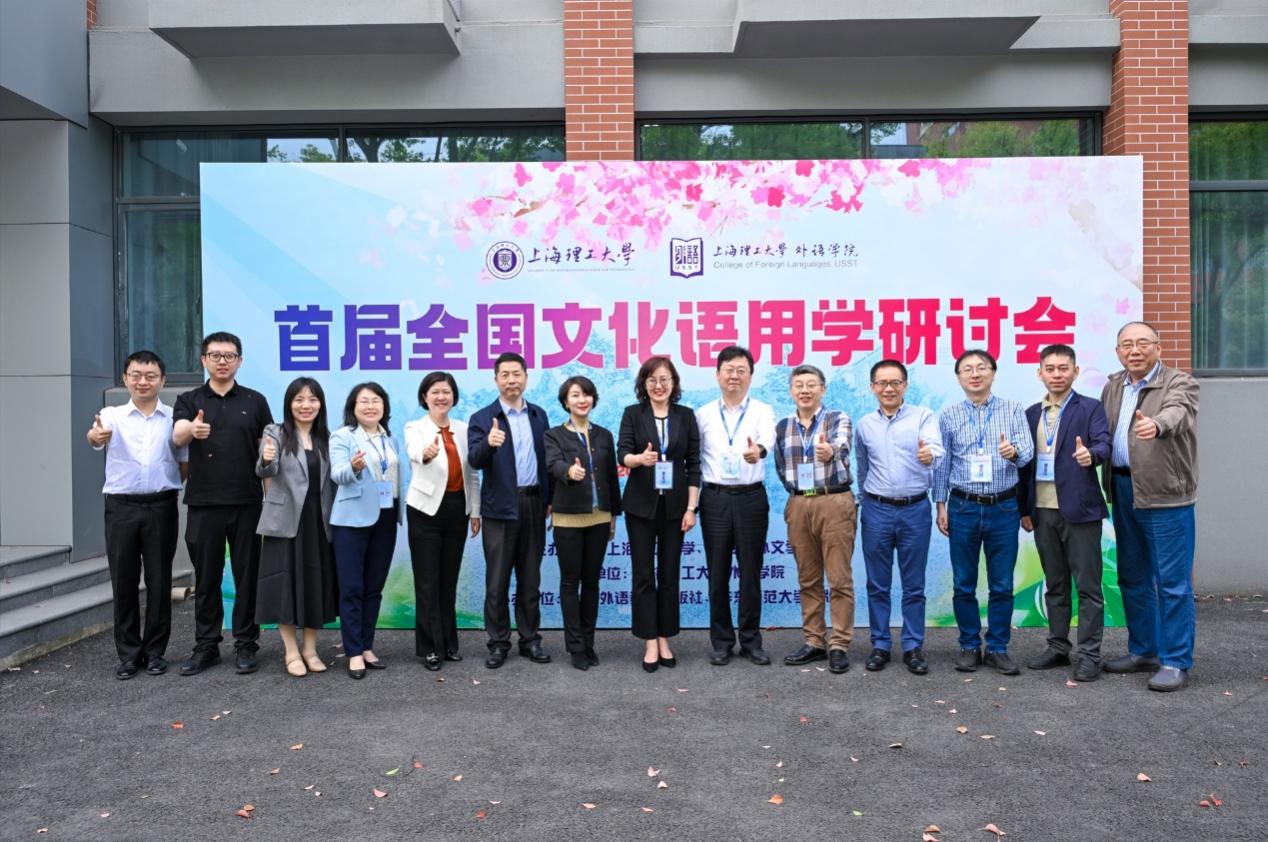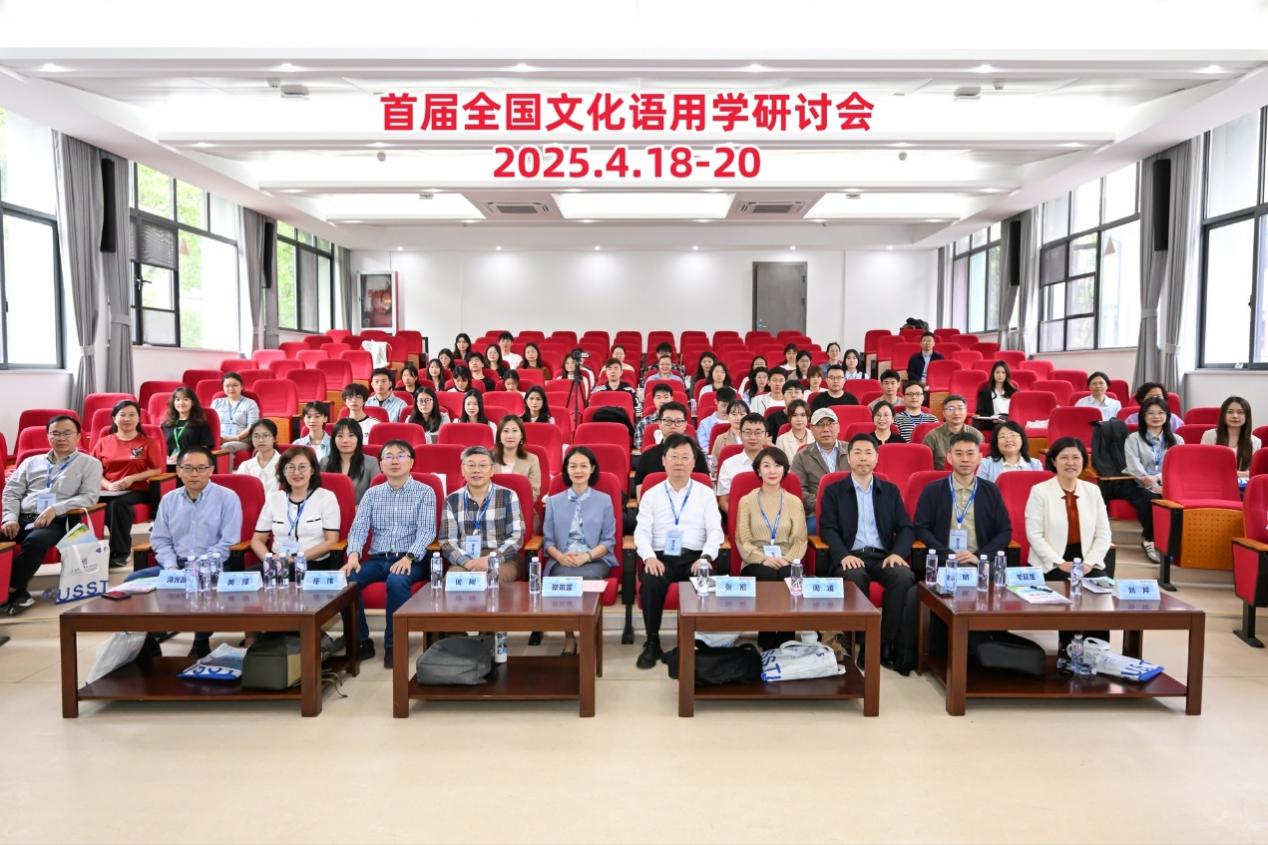On April 19-20, 2025, the Inaugural National Conference on Cultural Pragmatics was held at our college. The conference was jointly organized by USST and the Shanghai International Studies Association, hosted by the USST College of Foreign Languages, and co-sponsored by Shanghai Foreign Language Education Press and East China Normal University Press.
Under the theme "Cultural Pragmatics Research in the Age of AI," the conference brought together experts, scholars, and students from 36 universities across the country. Participants engaged in in-depth discussions and exchanges on such topics as the multi-layered connections between pragmatics and cultural intelligence, discourse construction and cultural subjectivity, human cultural pragmatic intelligence and artificial pathways, cultural pragmatic information and translation studies, as well as Chinese language proficiency of international students and children's pragmatic development. The collective efforts aimed to advance both the discipline's development and its practical applications.
Held in the Auditorium of the Foreign Languages Building at USST, the opening ceremony was presided over by Liu Qin, Dean of the College of Foreign Languages and Vice President of the Shanghai International Studies Association. Vice President Cai Yonglian delivered the welcome speech, extending a sincere welcome to all the participants. She emphasized the significant importance of exploring cultural pragmatics in the era of artificial intelligence. Zhang Hong, Deputy Editor-in-Chief of Shanghai Foreign Language Education Press gave a speech, highlighting the crucial role of cultural pragmatics in the interdisciplinary foreign language studies and its particular value within the Chinese academic context.
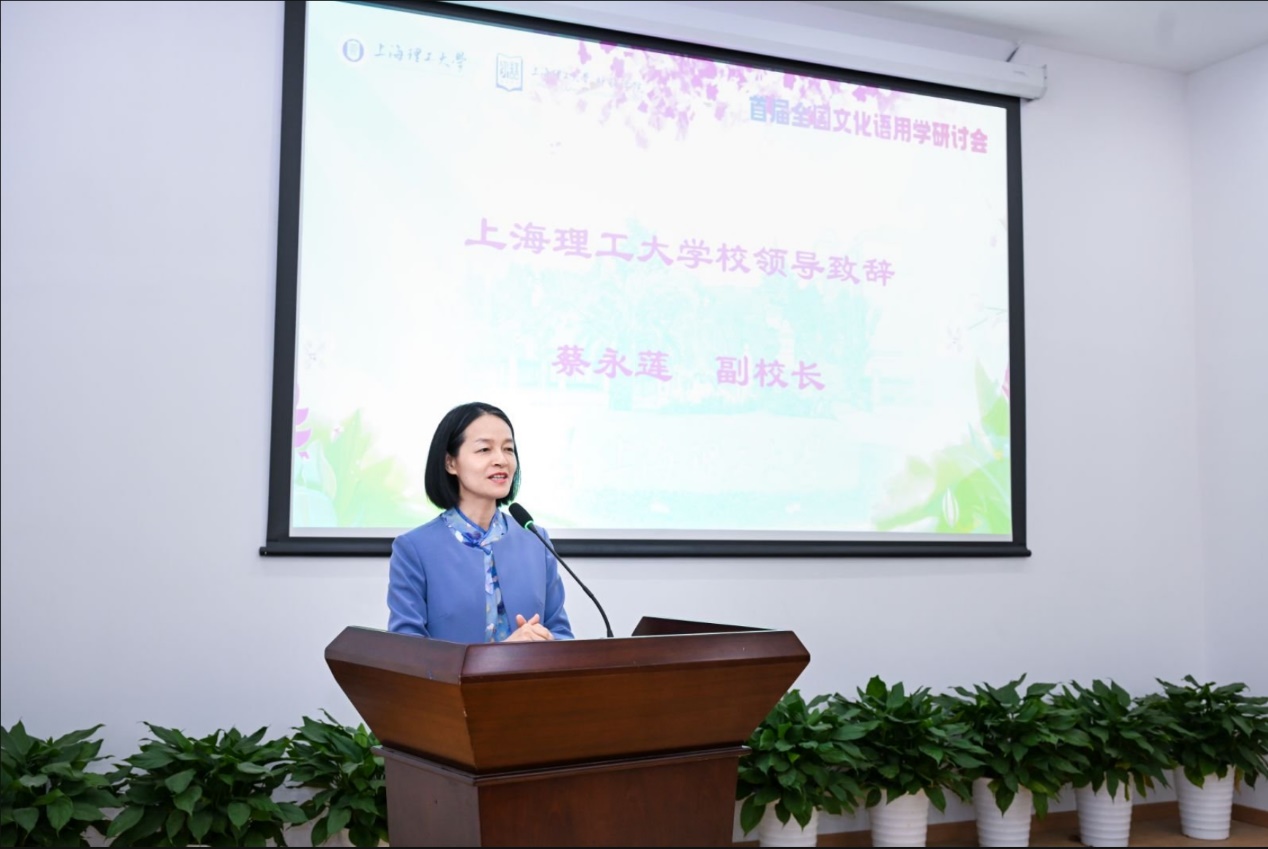
Vice President Cai Delivering a Welcome Speech
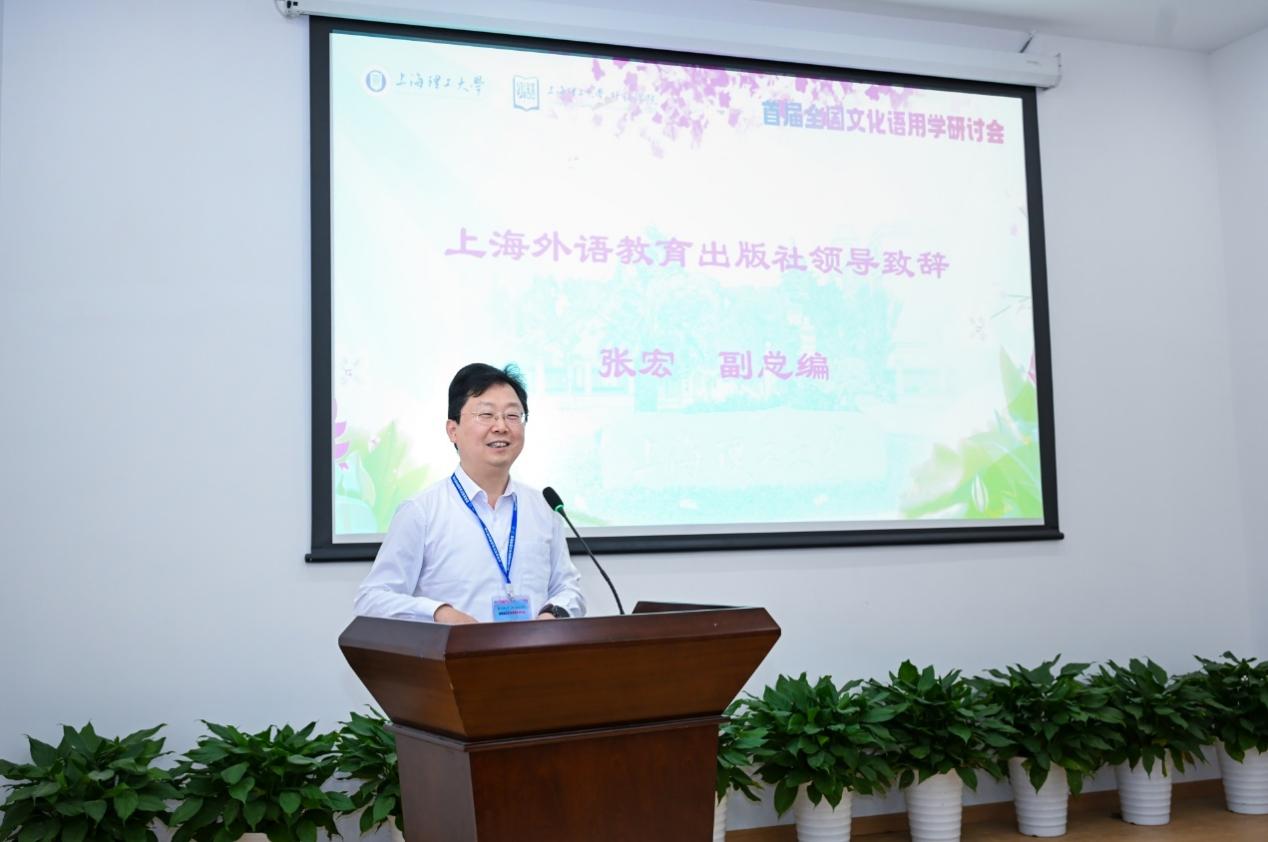
Professor Zhang delivering a speech
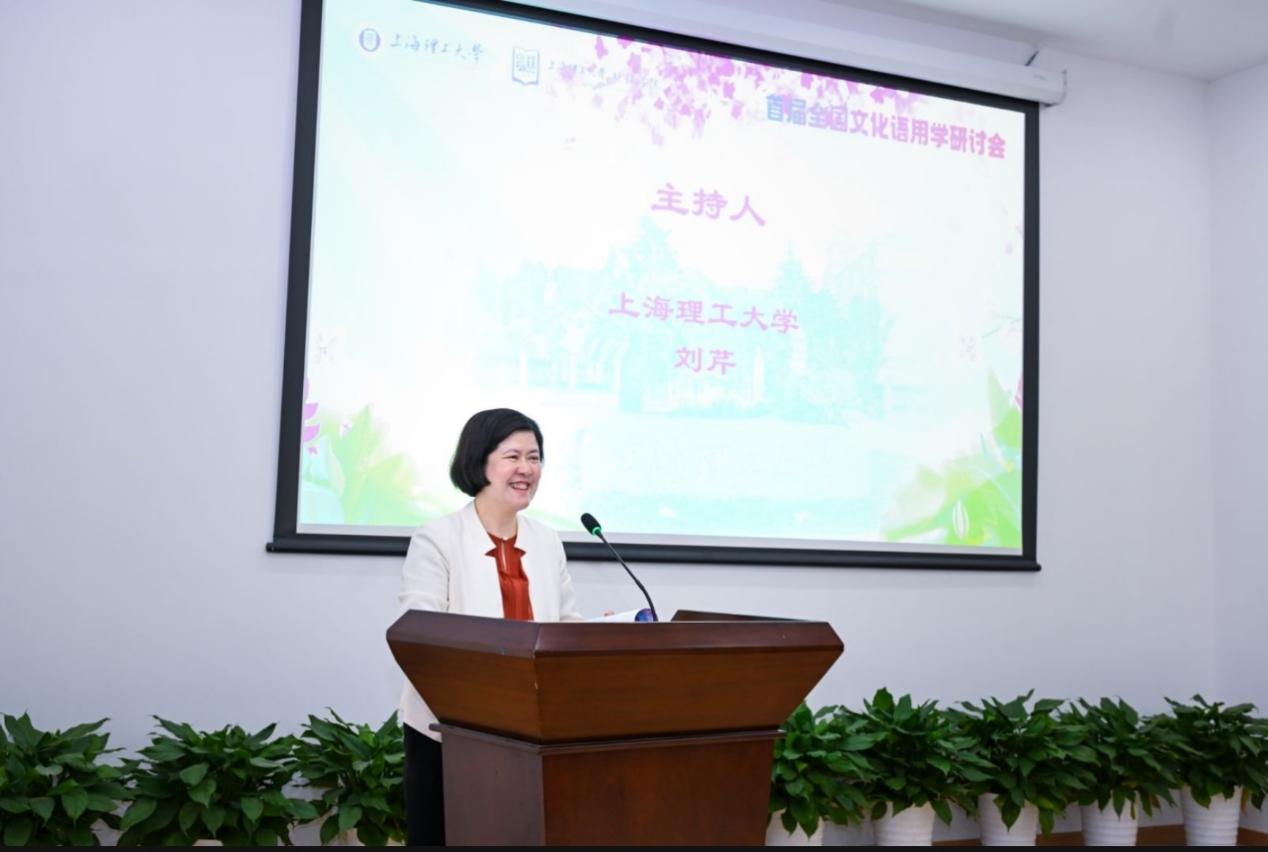
Dean Liu Presiding over the Forum
The conference featured keynote speeches by nine distinguished experts and scholars. On April 19, Professor He Gang from East China Normal University delivered a presentation titled “Exploring Ten Key Relationships in Cultural Pragmatics Research”. He examined the issues from ten distinct perspectives, offering a clear framework for establishing a scientific system of cultural pragmatics. In his keynote speech titled “A Preliminary Study on Computational Cultural Pragmatics”, Dr. Li Xianbo from the University of Electronic Science and Technology of China, introduced the potential and pathways for integrating computational pragmatics with cultural pragmatics, highlighting the promising application of computer science in this field.
Professor Ren Wei from Beihang University then presented “The Cultural-Pragmatic Mechanisms of Bragging on Social Media”. Through comparative studies of Chinese generational and gender groups, as well as cross-cultural analysis, he revealed how cultural factors influence self-praise strategies on social media, providing a fresh perspective for understanding cultural identity construction in the digital age.
Concluding the morning session, Professor Zhou Ling from Northeast Normal University, in her address titled “Square and Circle: A Socio-Cognitive Pragmatic Approach to the Localized Study of Relational Practices”, proposed a “Square-Circle Interaction” model for understanding relational practices in Chinese culture. This model offers a novel theoretical approach to the localization of interpersonal pragmatics and its socio-cognitive orientation.
In the afternoon session of April 19, in her speech “Discourse Humor Translation: Humor Generation in Cross-Cultural Contexts”, Professor Zuo Baoyao from East China Normal University, explored the mechanisms and challenges of translating humor across cultures. Her research provides theoretical support for understanding the cross-cultural transmission of humor, contributes to optimizing context-sensitivity in AI translation, and enhances its effectiveness in cross-cultural communication.
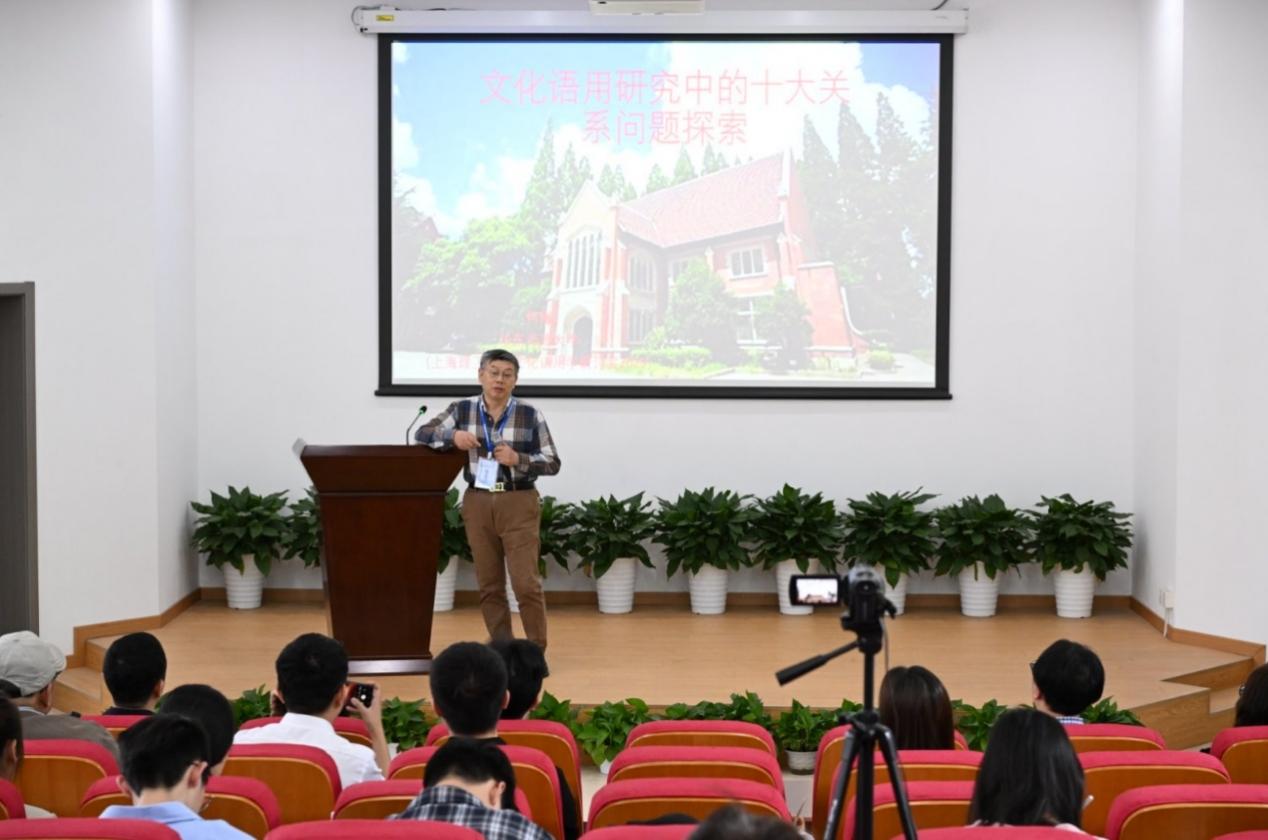
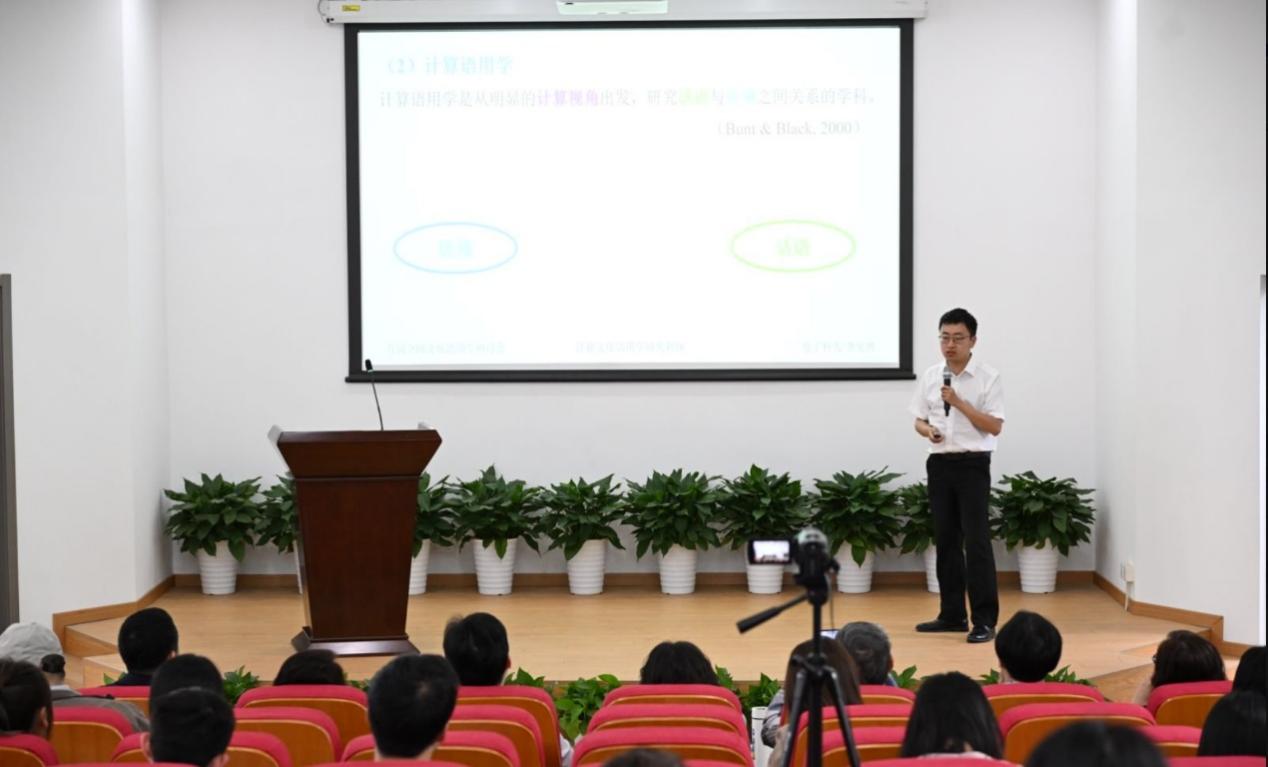
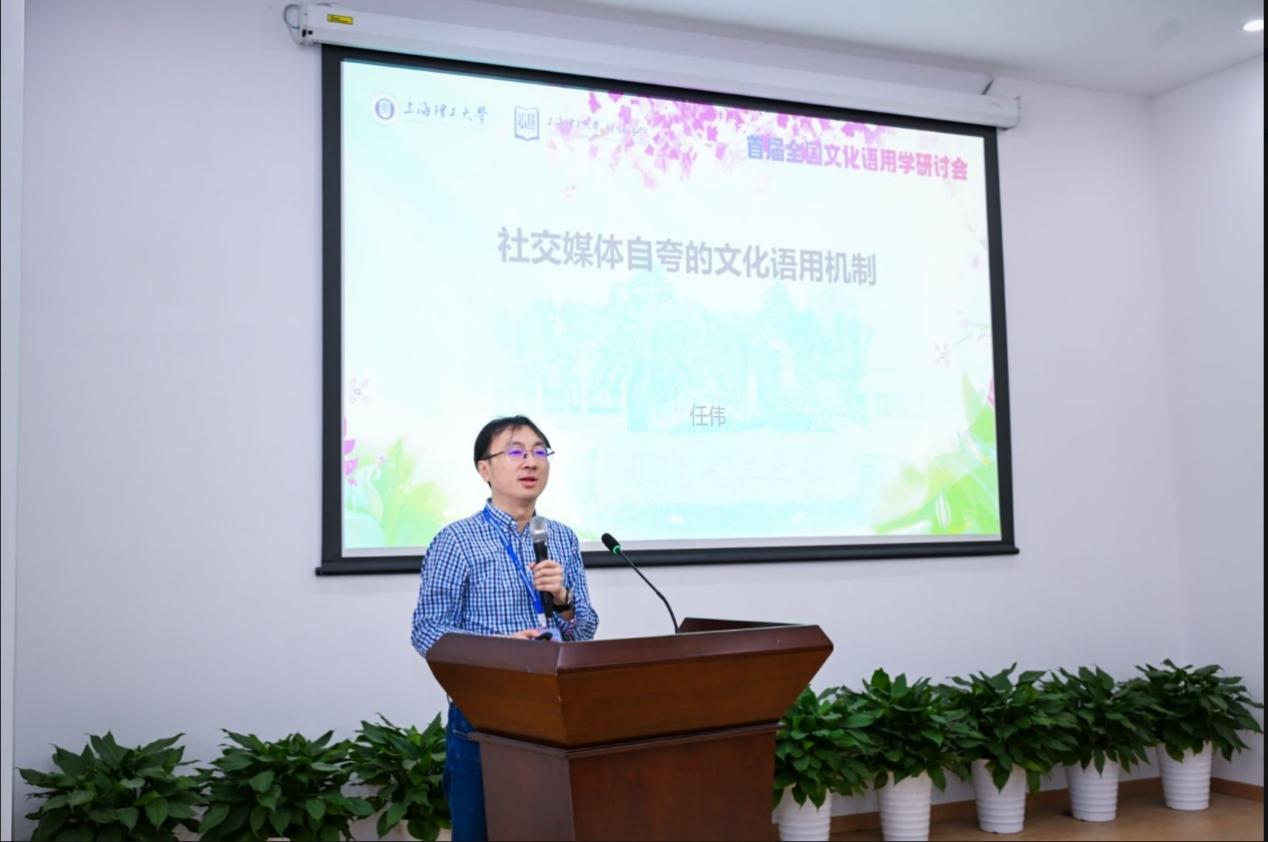
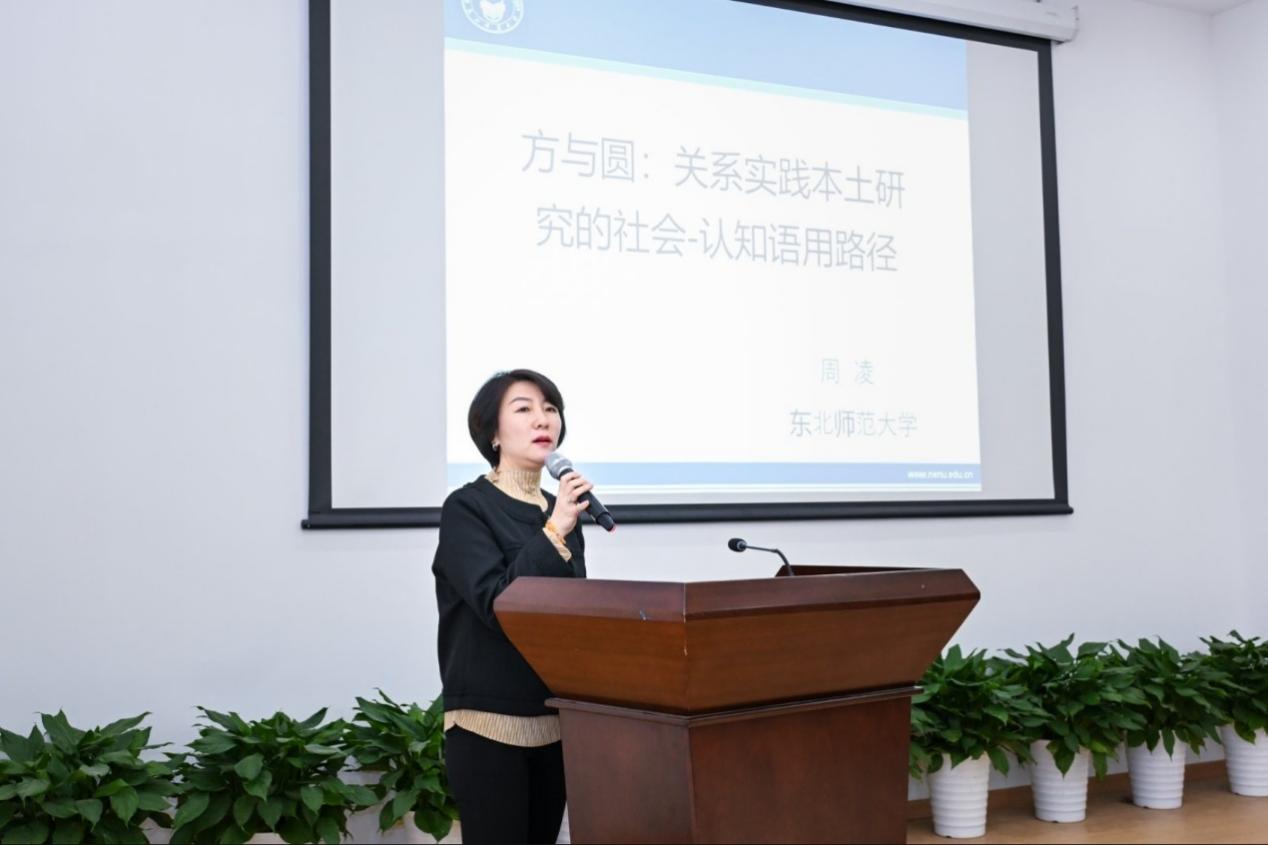
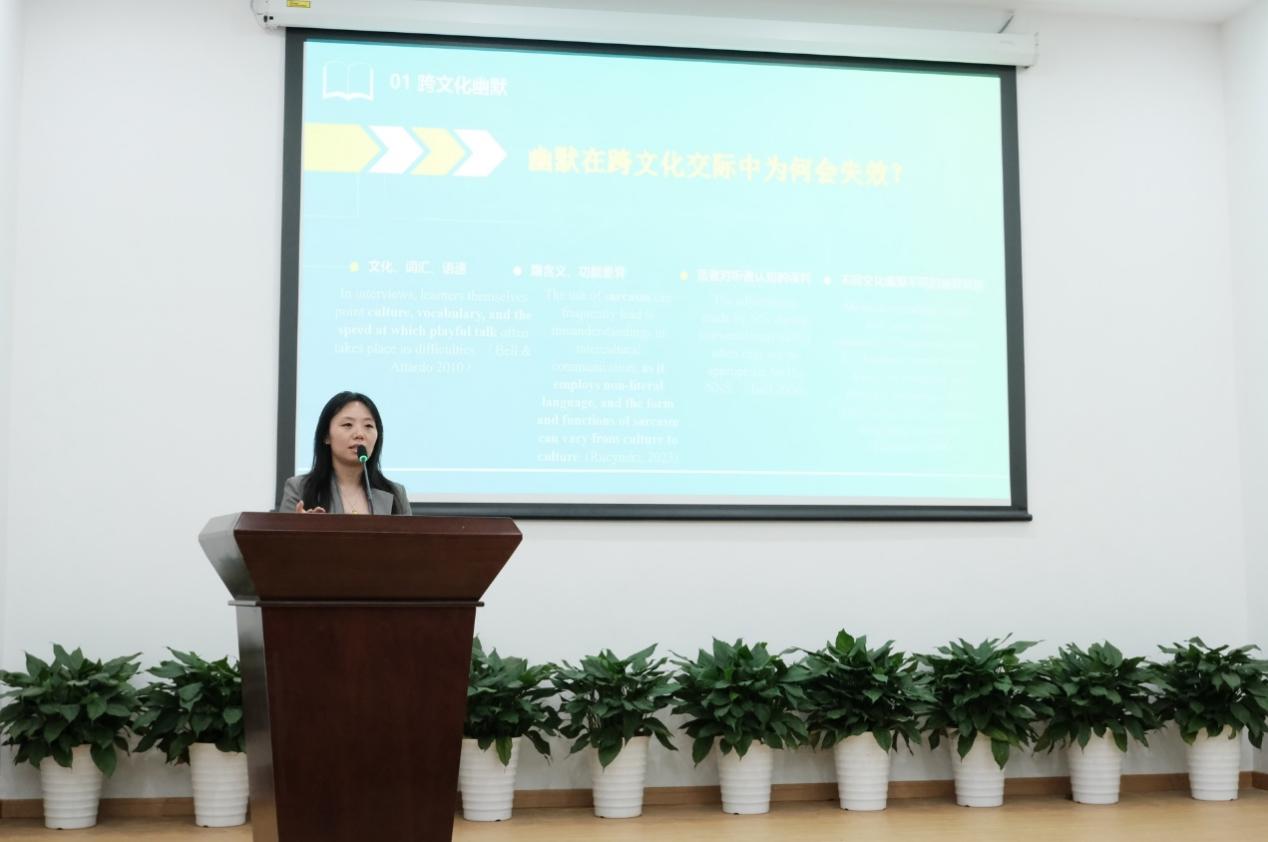
Keynote Speeches
On April 20, the conference continued with four insightful keynote presentations.
In his speech titled “Cultural Knowledge and Pragmatic Inference”, Professor Feng Guangwu from Guangdong University of Foreign Studies, proposed a listener-centered pragmatic inference model based on cultural knowledge, offering a fresh perspective for pragmatics research.
Professor Huang Ping from Heilongjiang University then presented “A Multi-dimensional Interpretation of Elderly Linguistic Life from the Perspective of Cultural Pragmatics”. In her speech, she examined the language experiences of the elderly, providing culturally-grounded pragmatic approaches to address language attrition and impairment associated with aging population.
Professor Mao Yansheng from Harbin Engineering University delivered a presentation on “Meaning Paradox in Chinese Children’s Reported Discourse: A Cultural Pragmatics Perspective”. His exploration of meaning paradox in children’s reported discourse not only offers new insights for child language development studies but also provides pragmatic evidence for the clinical diagnosis and assisted rehabilitation of linguistically crippled children.
Concluding the morning session, Professor Han Geling from USST presented her research on “Chinese Children’s Speech Acts and Pragmatic Development”. Through case studies and experimental research, she revealed the developmental patterns of Chinese children's pragmatic abilities and the influencing factors of socio-cultural background, offering valuable references for children's language education and communicative competence cultivation in the digital era.
The nine experts’ keynote speeches provided participants with abundant academic insights and diverse research perspectives.
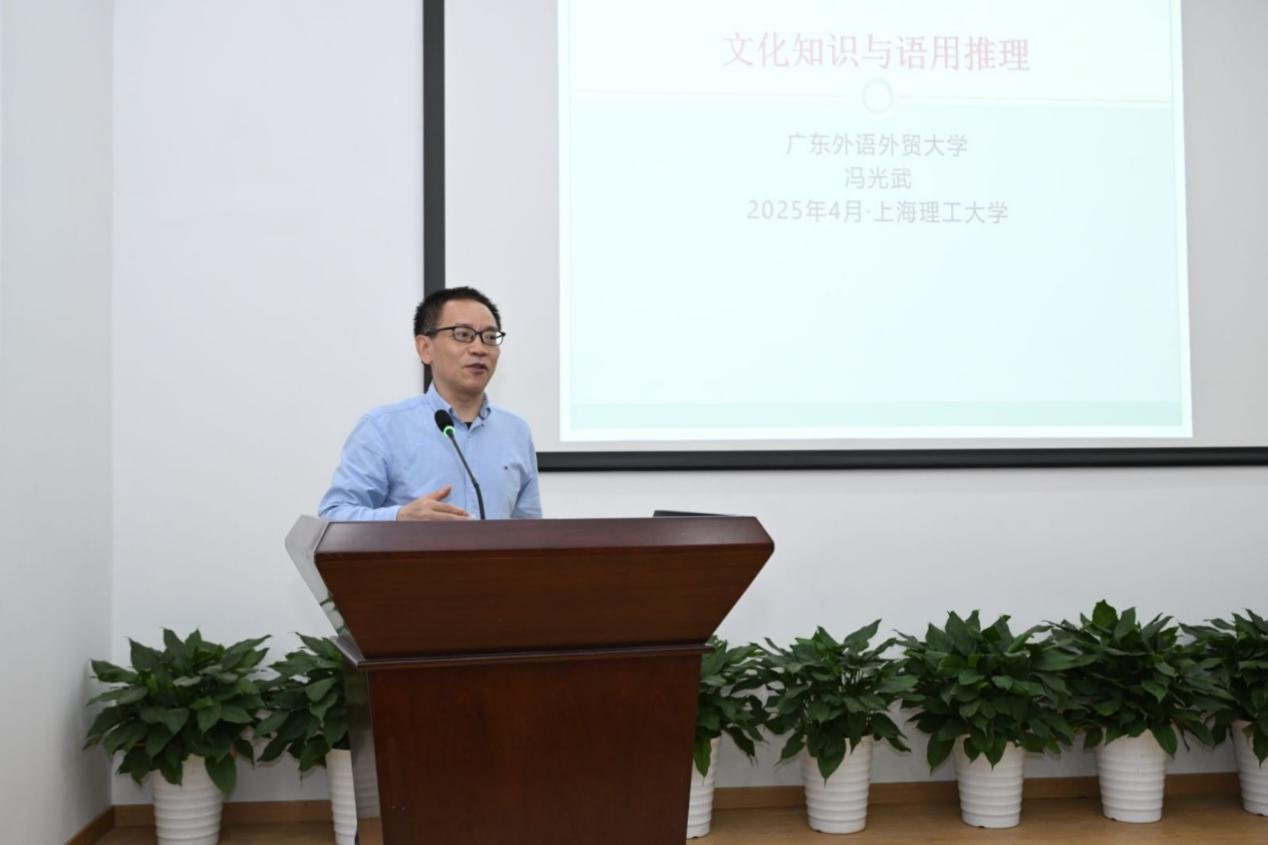
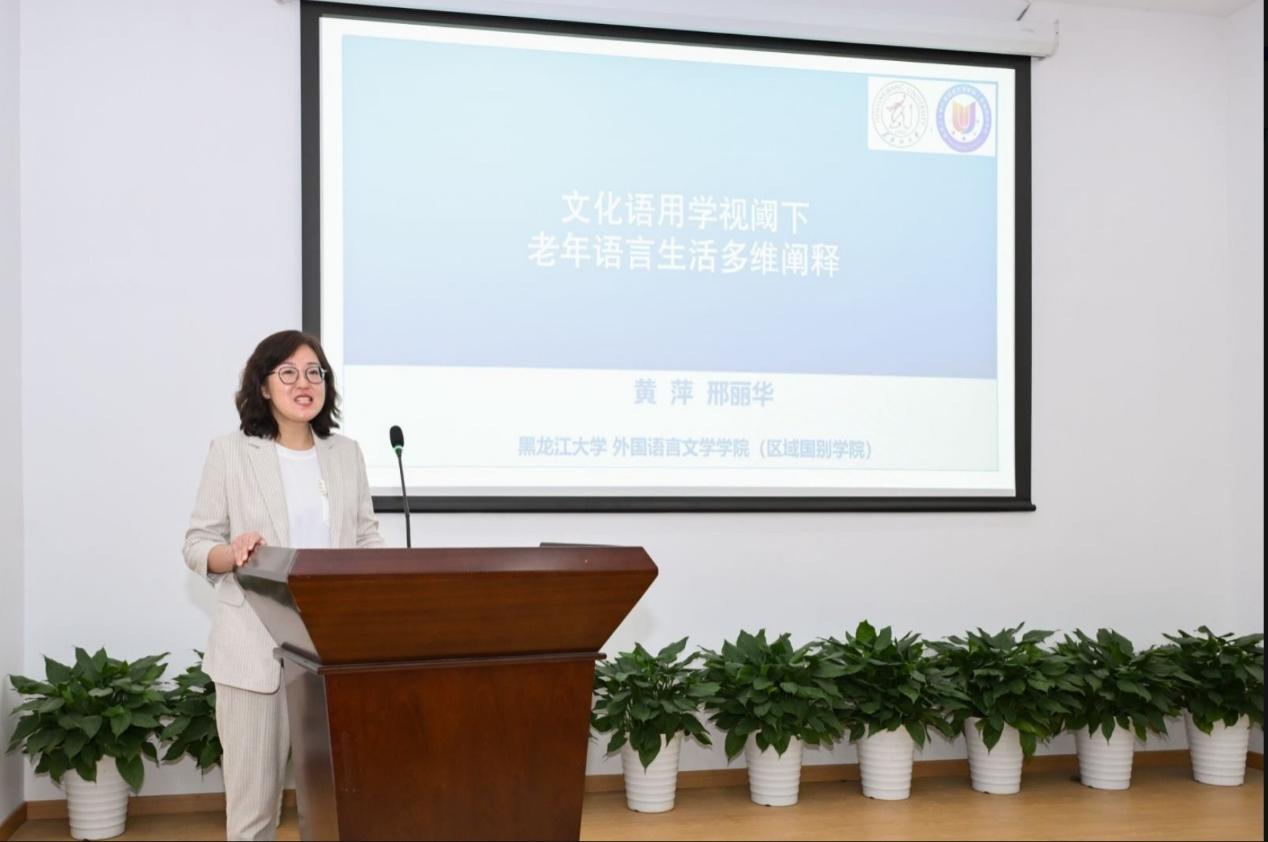
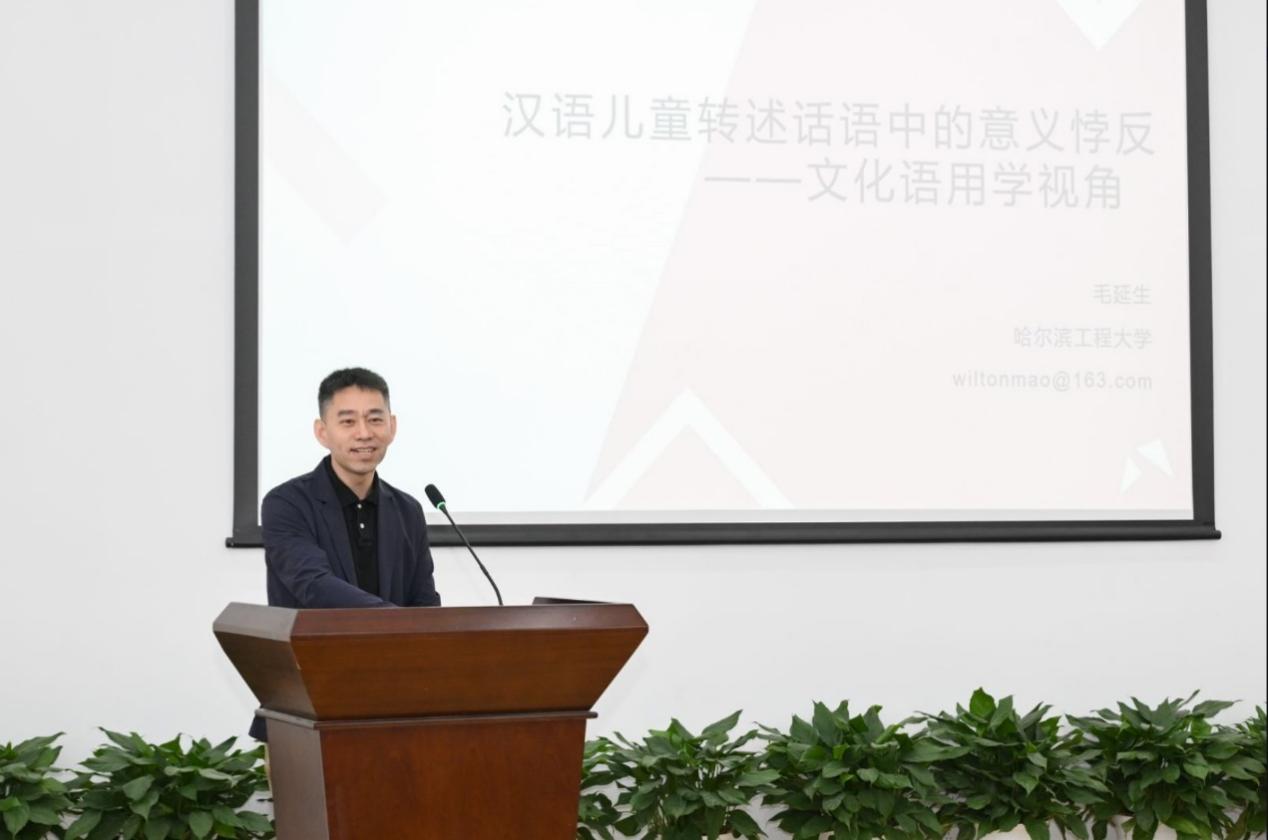
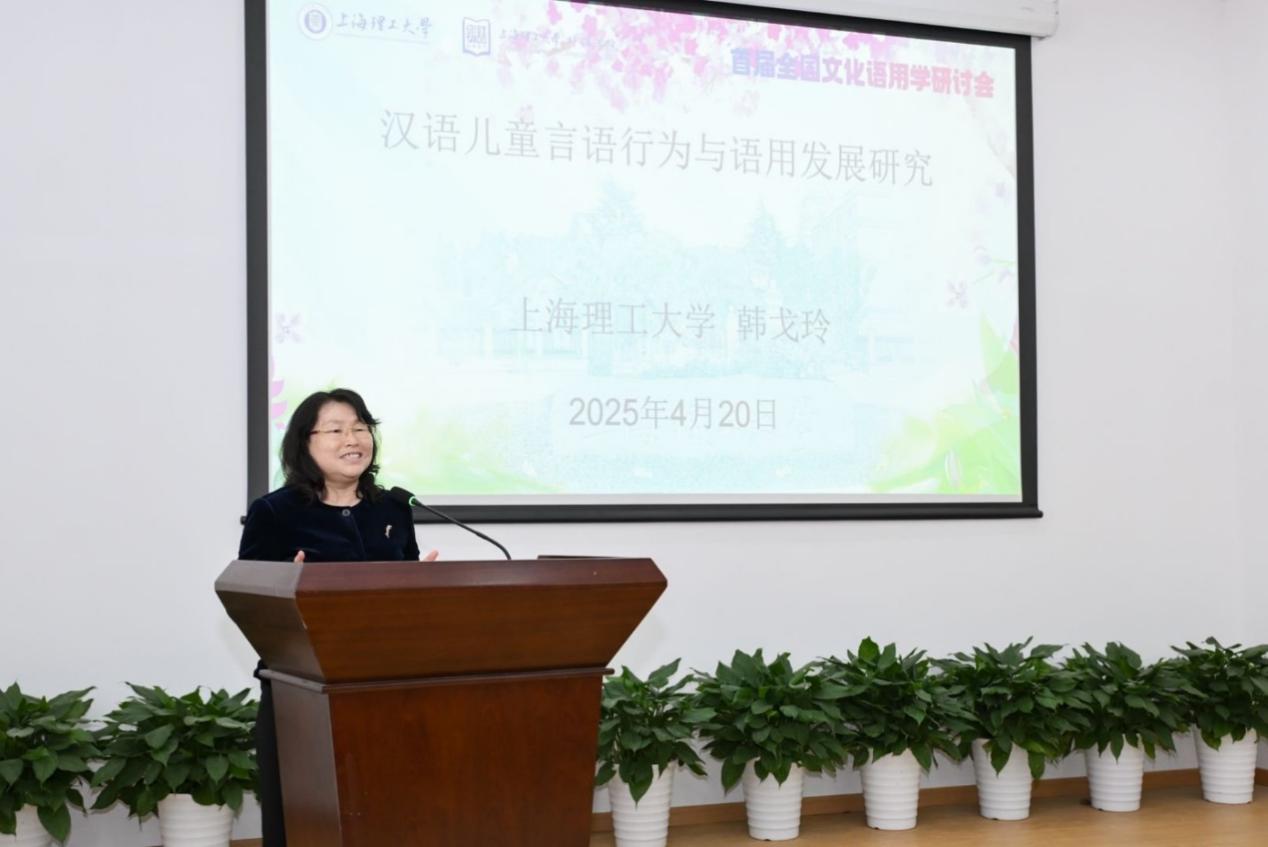
Keynote Speeches
The parallel forums of the conference were held on the afternoon of April 19.
Parallel Forum 1, under the theme “Cultural Pragmatics and Discourse Analysis”, facilitated in-depth exchanges on the application of cultural pragmatics in discourse studies. Participants examined this intersection from diverse perspectives, including the analysis of celebrity breakup announcements in the digital age, the semiotic codes of natural imagery, and multimodal discourse analysis.
Parallel Forum 2 focused on “Research on the Interaction between Human Cultural-Pragmatic Intelligence and Artificial Intelligence”. Participants engaged deeply with such topics as the design of AI instructions in Chinese, the evaluation of cultural-pragmatic intelligence in large language models, and gender representation in generative AI, exploring the complex interplay between human cultural-pragmatic intelligence and artificial intelligence.
Parallel Forum 3 is themed “Cultural Pragmatic Information in Translation and Online Communication”. Participants engaged in discussions on cultural pragmatic issues within these fields. Scholars explored topics from multiple perspectives, including a cultural-pragmatic ecosystem for online communication in the AI era, translation studies through the lens of cultural pragmatic information, and the cultural-pragmatic analysis of internet catchphrases.
Parallel Forum 4 focused on “Chinese Cultural Pragmatic Competence Development in Children and International Students”. Participants examined issues such as response strategies in Chinese children's conversations and the assessment and enhancement of cultural pragmatic competence among Chinese learning international students, providing fresh perspectives for teaching Chinese as a foreign language.
Parallel Forum 5, under the theme “Cultural Pragmatics and Language Teaching”, featured discussions on applying cultural pragmatics in pedagogical contexts. Presentations covered such areas as the application of politeness principles in international Chinese language classrooms, AI-empowered education in Chinese as a global language, and pragmatic transfer among advanced Chinese English learners.
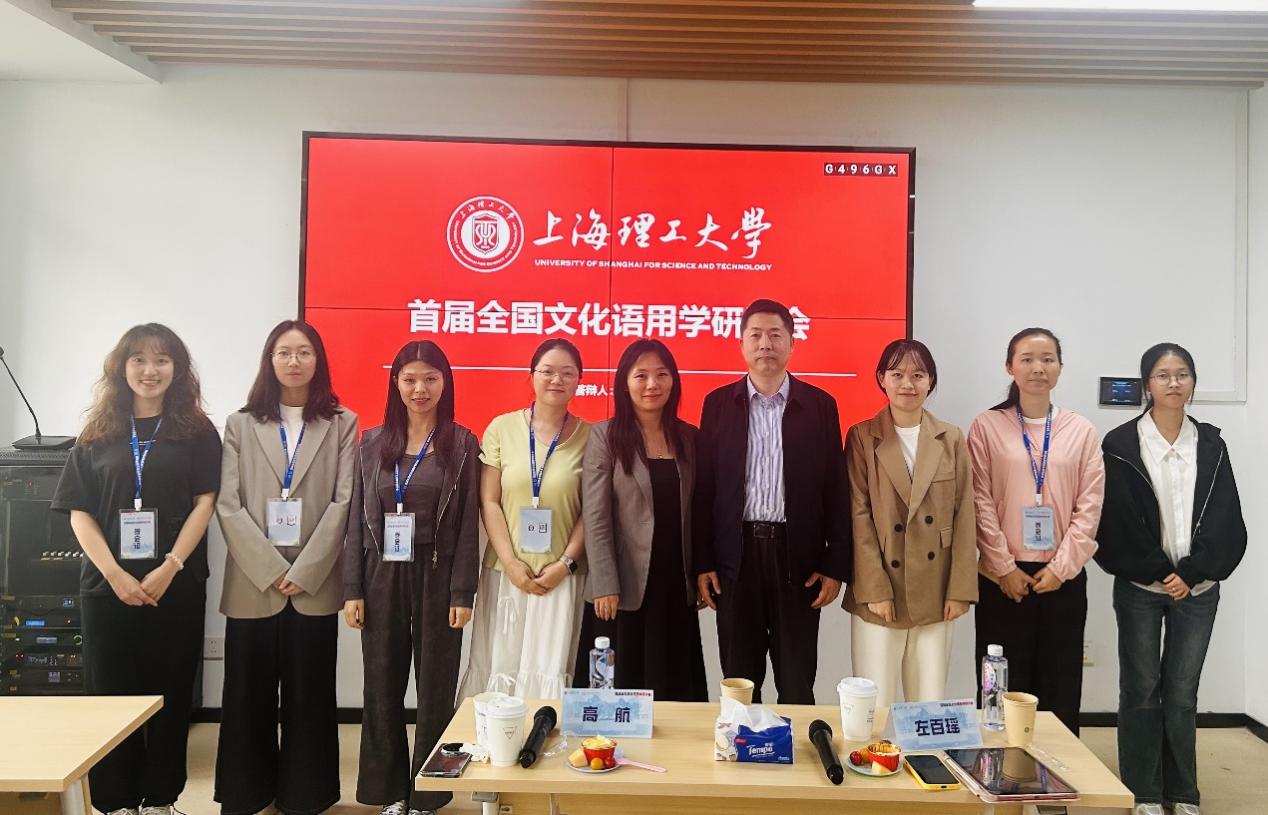
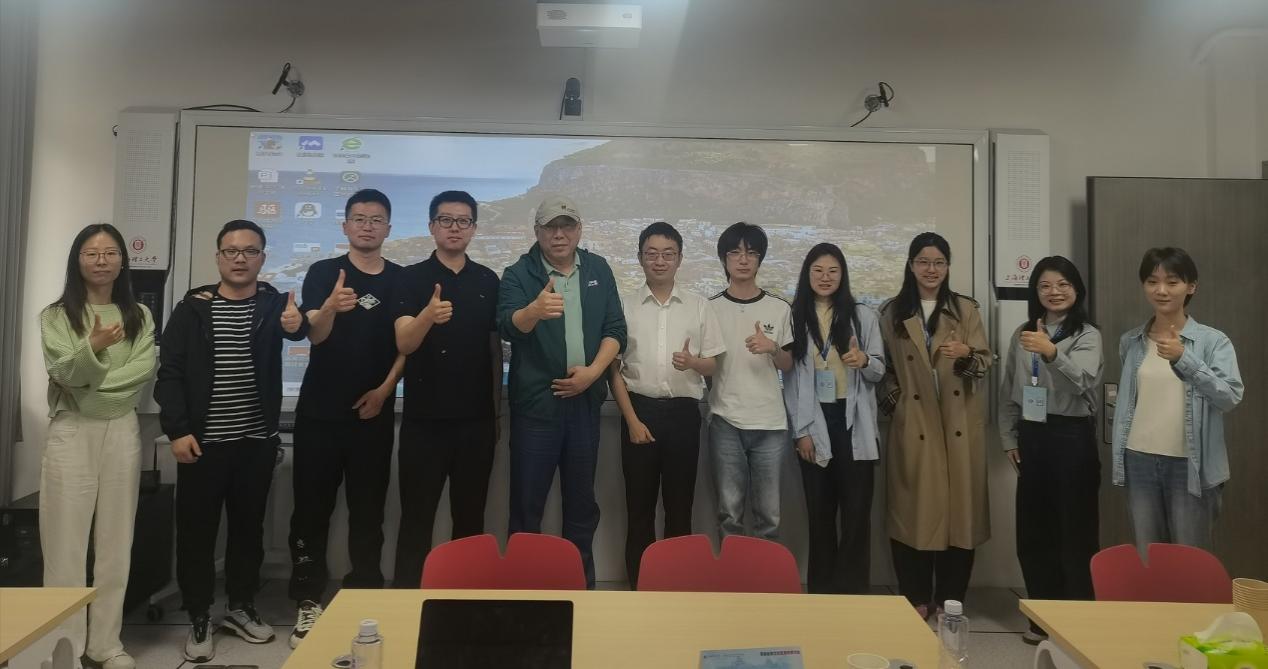
On April 20, the moderators of each parallel forum delivered their summary reports. Professor He Gang from East China Normal University delivered the closing address at the ceremony. In his speech, Professor He fully affirmed the conference's significant academic value and practical relevance. He expressed sincere gratitude to all participating scholars for their engagement and contributions, and extended heartfelt appreciation to the organizing, hosting, and co-organizing institutions for their meticulous preparation and strong support. Professor He also shared his vision for the future development of Cultural Pragmatics.
The inaugural National Conference on Cultural Pragmatics has not only provided a valuable platform for experts and scholars to exchange ideas and foster collaboration but also injected new vitality into the advancement of the discipline. It is believed that through the collective efforts of scholars, Cultural Pragmatics will embrace an even more brilliant future.
